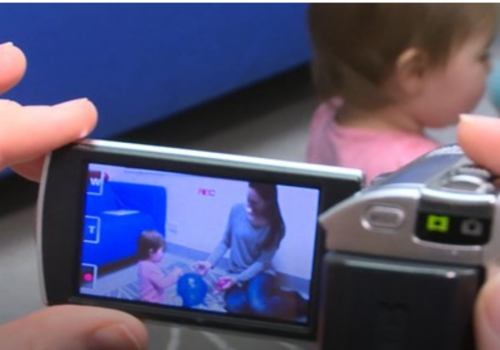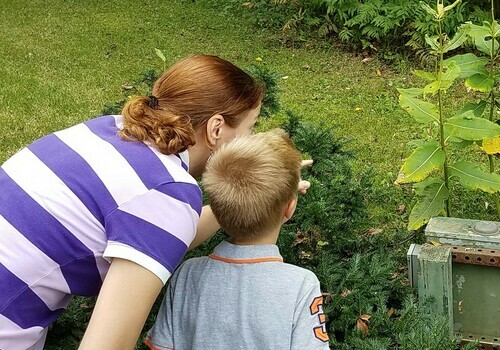Just like teaching them to brush their teeth, parents can help their children take better care of their eyes. That is, if the parents themselves know good vision habits. A new study shows that when parents are taught eyecare basics, they pass them on to their kids. A new parenting course helps them to learn.
Myopia Rising
The eye condition Myopia has become rampant worldwide among school-aged children.
Myopia is the technical term for being near-sighted or short-sighted. The condition changes the shape of the eye and causes things in the distance to look blurry.
Covid has made the worldwide trend worse by leading to much more screen viewing and an indoor-based lifestyle. At this rate, the Brian Holden Vision Institute predicts, by 2050 every other person will be nearsighted.
The fact that half of all humans will wear glasses may not seem like a big deal until you consider Myopia makes it easier to develop vision-destroying diseases. In the words of JAMA Ophthalmology, “One in 3 persons with high myopia will eventually become visually impaired or even blind.”
The journal authors point out another fact parents may not know: “Many ophthalmic diseases are caused by unhealthy behavior.”
In other words, eye problems can be PREVENTED.
Thankfully, a study in JAMA Network Opthalmology shows Myopia rates drop among kids if parents teach them healthy eyecare habits.
In the study, teachers in China sent some of the parents of their students weekly eyecare tips via WeChat. Other parents received no special instruction. The result: “the 2-year cumulative incidence rate of myopia in the intervention group was significantly lower than that in the control group.”
Toward Better Children’s Eye Care
Exactly how do kids maintain good vision? Science is learning more.
“Both electronic screen use and outdoor activity have recently been reported as key factors influencing the onset and progression of Myopia in school-aged children,” say the JAMA journal authors.
Messages from the Chinese teachers boiled down to 3 simple habits (which The Durable Human previously detailed here): Continue reading →







